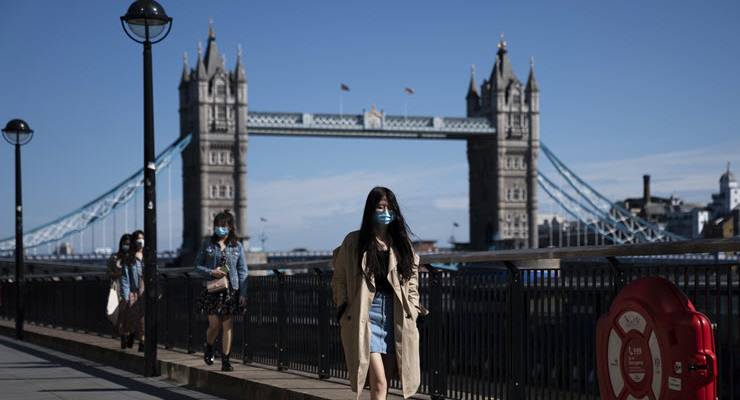
The International Monetary Fund (IMF) has upgraded its forecasts for global growth for this year but softened its forecast for next year as infection rates soar in Europe and the United States.
In its quarterly economic outlook, it has lifted its growth figure for 2020 to -4.4% from June’s estimate of -4.9%. But next year’s rebound will be weaker than expected: global growth is estimated at 5.2%, down from 5.4% in June and 5.8% in April.
The forecast are broadly in line with the government’s budget forecasts of -4.5% this year and 5% next year.
However, it also forecasts weaker growth for Australia than the budget: -4.2% this calendar year compared with -3.75% (and -4.5% in the IMF’s June forecast), and 3% next year rather than 4.5%.
The improved forecast for 2020 is partially based on the solid upturn in China, which was confirmed by strong September trade data and commodity import figures there on Tuesday. The IMF has lifted its forecast for China this year from 1% to 1.9% growth.
Despite a slightly less gloomy global outlook, the IMF is worried about both early withdrawal of fiscal support and the continuing pandemic.
“Preventing further setbacks will require that policy support is not prematurely withdrawn,” says IMF chief economist Gita Gopinath. “Recovery is not assured while the pandemic continues to spread.”
The rising level of infections will ensure the recovery is highly uneven.
“With renewed upticks in COVID-19 infections in places that had reduced local transmission to low levels, reopenings have paused, and targeted shutdowns are being reinstated,” the IMF says. “Economies everywhere face difficult paths back to pre-pandemic activity levels.”
Global daily COVID-19 cases are surging rapidly, driven by big rises in infections in Europe and the UK and a third wave in the US. So far there hasn’t been an equivalent rise in deaths — except in Russia where deaths have soared alarmingly — but numbers are starting to creep up.
Governments are responding with more selective restrictions rather than repeating economy-wide lockdowns earlier this year for the first wave, but social unrest and reluctance to comply is rising, and the US has had its first domestic right-wing terrorist plot in response to the pandemic.
The IMF also recommended member countries maintain relaxed monetary policy stances for as long as possible to offset the problems posed by the virus (and especially rising inequality). That will not provoke any opposition from the Reserve Bank or the US Federal Reserve which have committed to ultra-loose policies for three years at least.
National debt in advanced economies is set to reach 125% of GDP by the end of 2021 and to rise to about 65% of GDP in emerging markets during the same period, but the fund is not particularly worried about surging debt levels as interest rates are low and the economic rebound in 2021 should help repay some of the new debt.
Indeed the IMF — once the high priests of neoliberalism — went further, suggesting: “To ensure that debt remains on a sustainable path over the medium term, governments may need to increase the progressivity of their taxes and ensure that corporations pay their fair share of taxes while eliminating wasteful spending.”









Crikey is committed to hosting lively discussions. Help us keep the conversation useful, interesting and welcoming. We aim to publish comments quickly in the interest of promoting robust conversation, but we’re a small team and we deploy filters to protect against legal risk. Occasionally your comment may be held up while we review, but we’re working as fast as we can to keep the conversation rolling.
The Crikey comment section is members-only content. Please subscribe to leave a comment.
The Crikey comment section is members-only content. Please login to leave a comment.